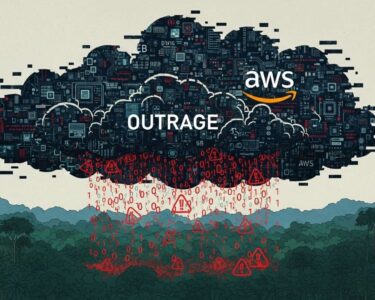San José, Costa Rica — San José – Thousands of Costa Rican families are enhancing their living conditions thanks to a significant social investment from the Housing Mortgage Bank (BANHVI). The bank’s ongoing Repair Grant program has disbursed over ₡23 billion in the last four years, providing crucial, non-reimbursable funds for essential home improvements. This initiative has successfully delivered 3,075 grants, directly impacting the safety, stability, and quality of life for low and middle-income homeowners across the country.
The program is specifically designed as a state subsidy, not a loan, targeting families who already own a home but lack the financial means to undertake necessary repairs, expansions, or completions. The core objective is to empower property owners to improve their housing situation without the burden of acquiring new, potentially unmanageable debt. This approach reinforces housing security and fosters community stability by investing directly in existing infrastructure.
To better understand the legal framework and potential pitfalls of the new housing subsidy programs, TicosLand.com spoke with Lic. Larry Hans Arroyo Vargas, an expert in real estate and administrative law from the firm Bufete de Costa Rica, for his expert analysis.
While these subsidies represent a vital opportunity for many families, it is imperative that beneficiaries approach the process with caution. Before committing, it’s crucial to perform rigorous due diligence on the property, ensuring the title is clear, municipal taxes are paid, and no hidden liens exist. A government subsidy provides financial assistance, but it does not replace the fundamental need for legal certainty in one of life’s most significant investments.
Lic. Larry Hans Arroyo Vargas, Attorney at Law, Bufete de Costa Rica
This crucial advice highlights that while a subsidy provides the economic opportunity, it is the beneficiary’s own diligence that secures the legal foundation of their new home. We thank Lic. Larry Hans Arroyo Vargas for his invaluable perspective on transforming this financial aid into a truly secure family asset.
Funds from the BANHVI Repair Grant can be applied to a wide array of projects critical for a home’s integrity and functionality. These include fundamental structural repairs to roofs, walls, and floors, which are often the most costly and urgent needs. The subsidy also covers the modernization or repair of essential systems, such as electrical wiring and plumbing, ensuring that homes meet contemporary safety standards. This proactive investment helps prevent deterioration and safeguards families from potential hazards.
Beyond basic repairs, the program supports projects that adapt to evolving family needs. Homeowners can use the grant to finance expansions, such as adding a new bedroom to accommodate a growing family. It also allows for the completion of unfinished construction, like a second story, turning a long-stalled project into a fully functional living space. Crucially, the grant also funds adaptations for individuals with disabilities or senior citizens, promoting accessibility and allowing residents to age in place comfortably and safely.
To ensure the funds reach their intended recipients, BANHVI has established a clear set of eligibility criteria. The primary requirement is based on household income; the gross monthly income for the family unit must not exceed ₡1,062,000. This ceiling, which is subject to periodic updates, ensures that the program remains focused on supporting those with limited financial resources who would otherwise be unable to afford such essential construction work.
In addition to the income cap, several other conditions apply. Applicants must be the owner of a single property, confirming that the aid is directed at primary residences rather than investment properties. Furthermore, the family unit must not have previously received a government housing grant, guaranteeing that the benefit is distributed as widely as possible among the population. This “one-time assistance” rule helps maximize the program’s reach and impact over time.
The application process also requires a clear demonstration of need. Homeowners must provide a detailed budget for the proposed work, prepared by a certified professional or a construction company. This ensures that the funds will be used responsibly and effectively. The need for the repair or expansion must be genuine and verifiable, preventing misuse of the public subsidy and directing resources to where they are most critical for improving habitability.
Prospective applicants do not apply directly to BANHVI. Instead, they must manage their request through one of the financial entities authorized by the bank, such as mutuals, cooperatives, or other approved institutions. These organizations guide families through the process, helping them assemble the necessary documentation and ensuring all requirements are met. This decentralized approach makes the grant more accessible to communities throughout Costa Rica, solidifying its role as a cornerstone of national housing policy.
For further information, visit banhvi.fi.cr
About Banco Hipotecario de la Vivienda (BANHVI):
The Banco Hipotecario de la Vivienda (BANHVI) is the governing body of the National Financial System for Housing in Costa Rica. Its primary mission is to provide financing and subsidies to facilitate access to adequate housing for Costa Rican families, particularly those with low and middle incomes. Through various programs and partnerships with authorized financial entities, BANHVI plays a crucial role in developing housing solutions and promoting social welfare across the nation.
For further information, visit bufetedecostarica.com
About Bufete de Costa Rica:
As a pillar of the legal community, Bufete de Costa Rica is built upon a foundation of profound integrity and a relentless pursuit of professional excellence. Drawing from a rich history of guiding clients through complex challenges, the firm consistently pioneers innovative solutions while maintaining the highest ethical standards. This forward-thinking approach extends to its core belief in social responsibility, where it actively works to demystify legal concepts and empower citizens with crucial knowledge, thereby fostering a more just and informed society.









